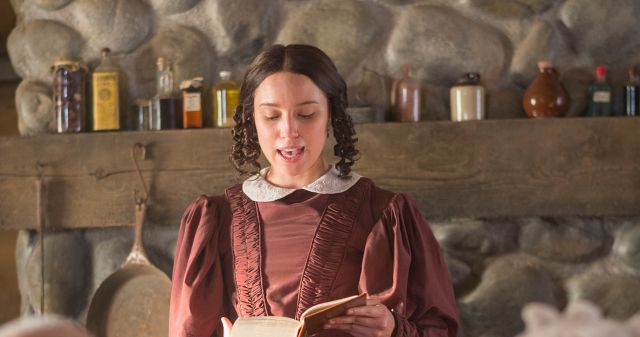To accompany your Come Follow Me study for March 17-23
In addition to reading these four sections, you will also want to:
- Read Saints, 1:89-90, 94-97
- Read “Voices of the Restoration: Emma Hale Smith,” at https://www.churchofjesuschrist.org/study/manual/come-follow-me-for-individuals-and-families-doctrine-and-covenants-2021/11?lang=eng
- Read “Thou Art an Elect Lady,” Revelations in Context, 33-39
- Read Chapter 10: Doctrine and Covenants 23–25 (churchofjesuschrist.org)
- Read Chapter 11: Doctrine and Covenants 26–28 (churchofjesuschrist.org)
- Read Joseph Smith’s Revelations, Doctrine and Covenants 23 (churchofjesuschrist.org)
- Read Joseph Smith’s Revelations, Doctrine and Covenants 24 (churchofjesuschrist.org)
- Read Joseph Smith’s Revelations, Doctrine and Covenants 25 (churchofjesuschrist.org)
- Read Joseph Smith’s Revelations, Doctrine and Covenants 26 (churchofjesuschrist.org)
- See the following videos:
- Check out the Kahoot game at https://create.kahoot.it/share/doctrine-and-covenants-23-26/941e0620-9387-4968-ba74-e3dbffc6c485. To use it with a group, after clicking on this link, you will need to log into Kahoot, creating a free account if you have not done so previously, then click on the blue “Host Live” button or the gray “Assign” button, depending on how you wish to use the Kahoot. Some of the Kahoot questions may presuppose that the player has read through the suggested answers to the following Points to Ponder and at least has browsed the Institute student manual as well.
Points to Ponder in Doctrine and Covenants 23-26
1. What weakness did the Lord identify in Oliver Cowdery which would eventually lead him (and too many others) out of the Church?
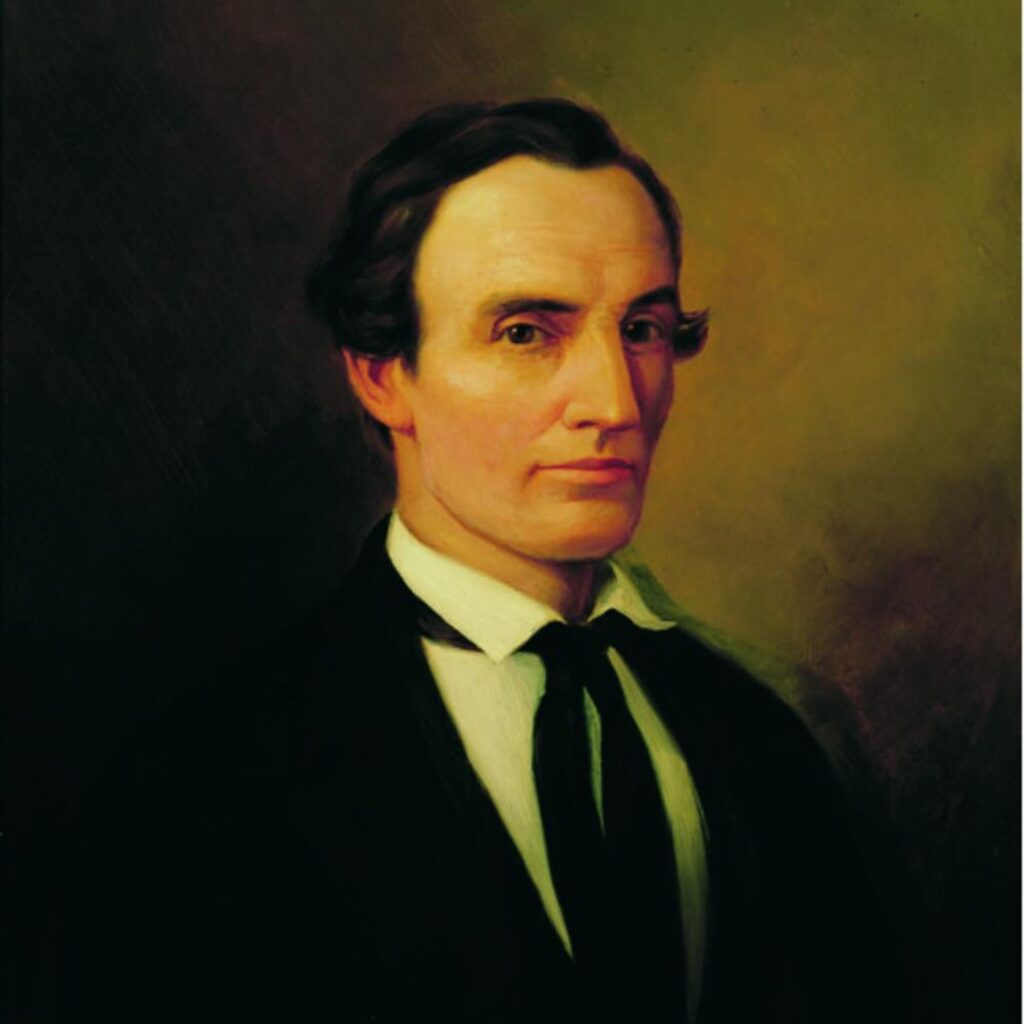
2. What wonderful general principle can you extract from 24:3?
3. Why would the Lord term it “taking up his cross” for Joseph Knight to be asked to do something so simple as praying? (23:6)
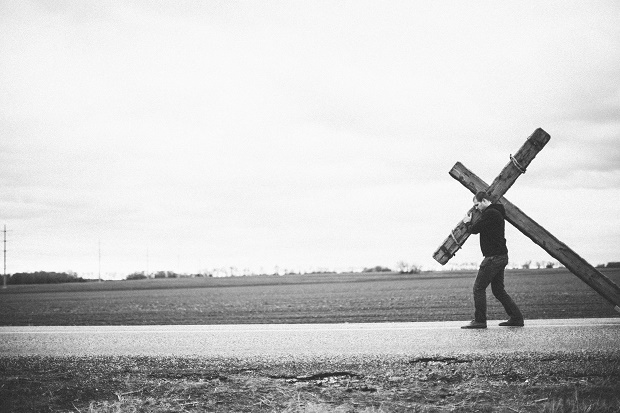
3a. D&C 24:8 tells Joseph Smith to ‘be patient in afflictions.’ How can this principle help us when facing trials today?
4. Why would someone as capable as Joseph Smith never be able to make a decent living to provide for his family? (24:9)
4a. What can we learn from the Lord’s instruction that Joseph Smith’s work was to attend to his church calling rather than seek financial security (D&C 24:9)?
5. What scriptures would “be fulfilled” by following the counsel of 24:14?
6. In areas of high Latter-day Saint concentration, it used to be common for priesthood holders to wander through hospitals looking for opportunities to give blessings to the sick. What in today’s reading suggests that was possibly not a good idea?
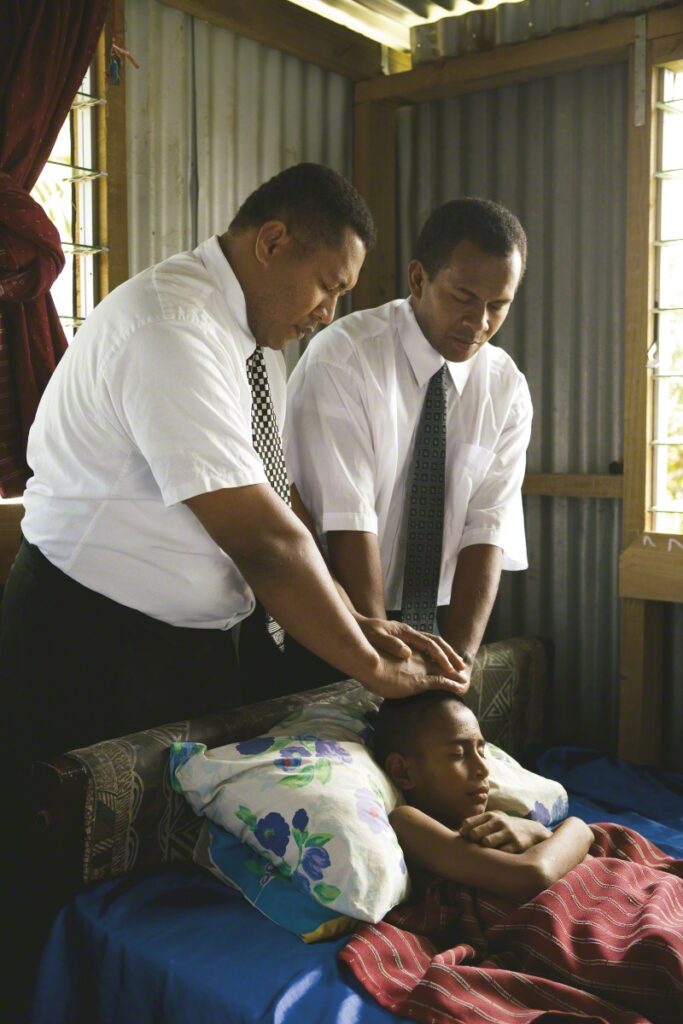
7. Why would the Lord tell Oliver Cowdery (24:10) that no matter how much preaching he did, it wouldn’t be enough? Wouldn’t that be rather discouraging news?
8. Why don’t missionaries today generally follow the practice of 24:15 of casting off the dust of their feet when someone rejects them?
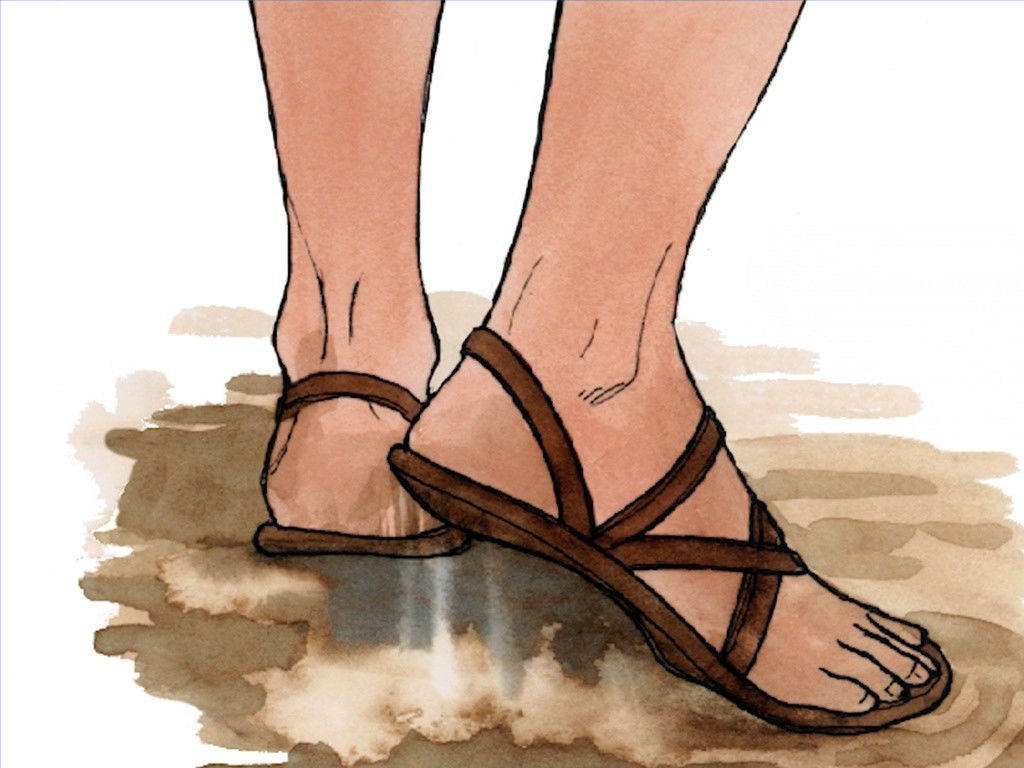
9. Why don’t missionaries today go without purse and scrip as 24:18 says they should?
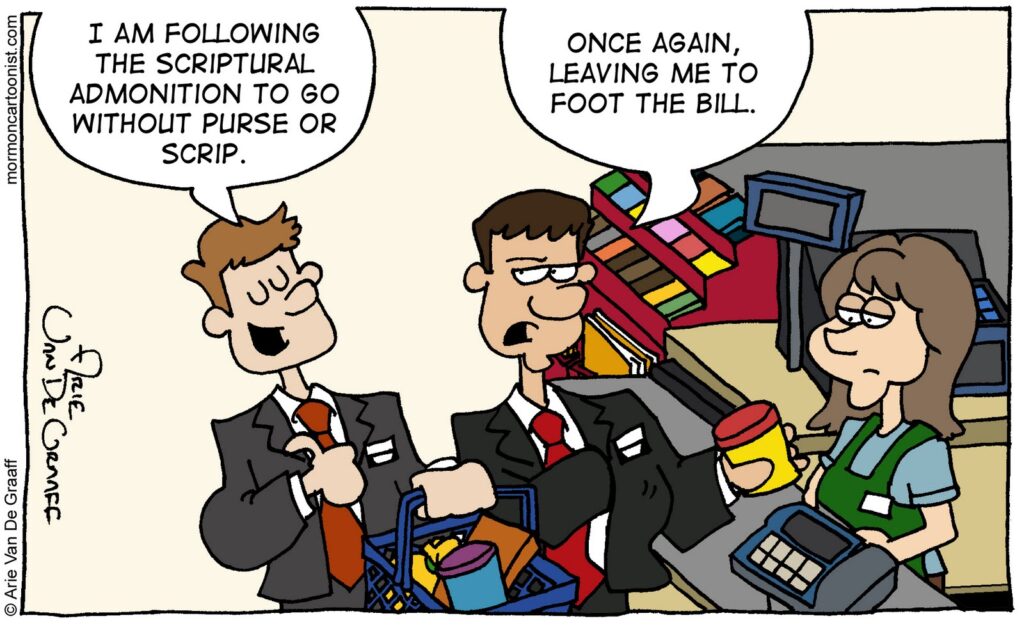
10. What does the Lord mean by calling Emma Smith an “elect lady”? What was she elected to?
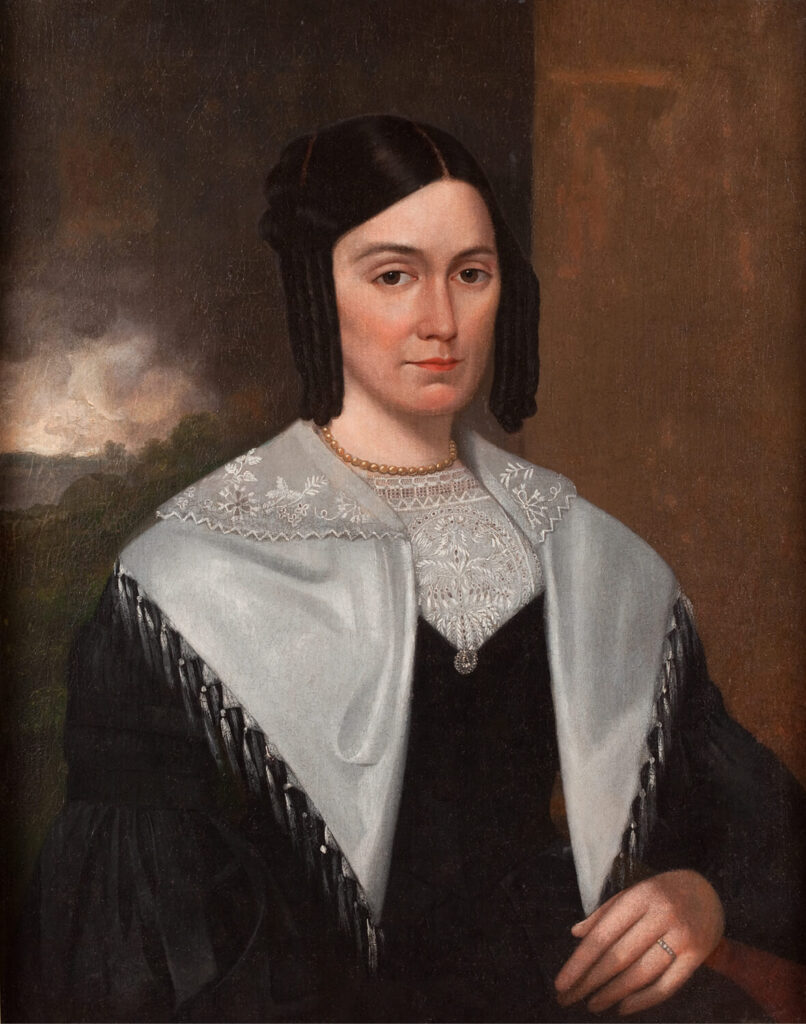
11. Portions of D&C 25 were specifically for Emma Smith and other portions were evidently directed to women in general. What do you consider the three most significant items of counsel in the sections that you believe are applicable to all women?
11a. What lessons can we draw from the Lord’s counsel to ‘lay aside the things of this world’ (D&C 25:10) in our modern lives?
12. Why was Emma Smith “ordained” under the hands of her husband, when women today in the Church aren’t ordained at all?
13. What can we learn from Emma Smith’s role in compiling the first hymnbook about the power of music in worship?
13a. Why is it important that we participate in singing the hymns in church?
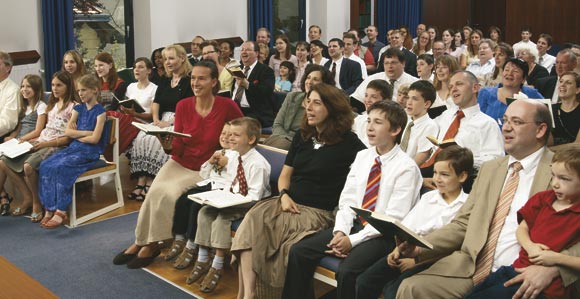
14. How do sustaining votes in the Church differ from votes cast in a secular election?
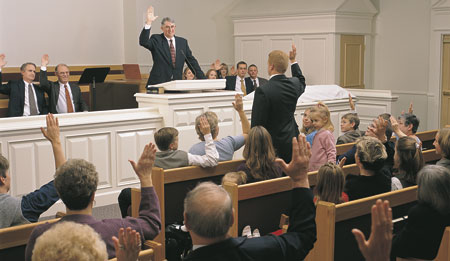
14a. What benefits come from having “all things … done by common consent in the church”?
15. When is it okay to vote against someone who is being proposed for a sustaining vote in a church meeting?
Possible Answers to Points to Ponder in Doctrine and Covenants 23-26
1. What weakness did the Lord identify in Oliver Cowdery which would eventually lead him (and too many others) out of the Church?
Pride (23:1). Fortunately, Oliver eventually found his way back. Unfortunately, too many others do not return, believing themselves wiser than the Lord’s prophet. They focus too much on seeing the man in the Prophet rather than the Prophet in the man.
2. What wonderful general principle can you extract from 24:3?
When we make financial sacrifices for the Lord’s work, we’ll be blessed both spiritually and temporally.
3. Why would the Lord term it “taking up his cross” for Joseph Knight to be asked to do something so simple as praying? (23:6)
It appears that Joseph Knight may have been a bit socially backward or possessed of an inferiority complex and didn’t feel comfortable praying in public or taking the lead in family prayers. But as the head of the Knight family, which essentially constituted the Colesville Branch of the Church, he would need to pray regularly in meetings, and he would need to set the example for his family in this, as in other things. What seems simple to an extrovert raised in the Church can feel overwhelming to a new member, particularly one who is an introvert.”
3a. D&C 24:8 tells Joseph Smith to ‘be patient in afflictions.’ How can this principle help us when facing trials today?
Patience in afflictions means trusting in the Lord’s timing and purposes, even when hardships arise. This perspective allows us to endure difficulties with faith, knowing that challenges refine us and bring us closer to Christ.
4. Why would someone as capable as Joseph Smith never be able to make a decent living to provide for his family? (24:9)
As the Lord said, this was not Joseph’s calling. He was asked by the Lord to do things far more important than to succeed in business or become a wealthy farmer. He was constantly on the move. Persecution followed him his entire life, finally cutting it short at the tender age of 38. He was involved for long periods of time in such projects as the translation of the Book of Mormon and the revision of the Bible. Had Joseph lived at a different time and in different circumstances, without the burden the Lord put upon him to be the first prophet of a new dispensation, there is little doubt that he could have been as remarkably successful in business as he was in everything else the Lord gave him to do.
4a. What can we learn from the Lord’s instruction that Joseph Smith’s work was to attend to his church calling rather than seek financial security (D&C 24:9)?
This teaches us about divine priorities. While financial stability is important, the Lord often calls us to focus on spiritual responsibilities first, trusting that He will provide for our needs in His own way.
5. What scriptures would “be fulfilled” by following the counsel of 24:14?
Mark 16:16-20 and others with the same message that signs should follow those that believe and that healings were never intended to be an inducement to belief.
6. In areas of high Latter-day Saint concentration, it used to be common for priesthood holders to wander through hospitals looking for opportunities to give blessings to the sick. What in today’s reading suggests that was possibly not a good idea?
This question is closely related to the preceding one. 24:14 specifically says, “These things ye shall not do, except it be required of you by them who desire it.”
7. Why would the Lord tell Oliver Cowdery (24:10) that no matter how much preaching he did, it wouldn’t be enough? Wouldn’t that be rather discouraging news?
The Lord isn’t implying that Oliver’s best efforts would be insufficient, but rather that no matter how much he preached, the need for preaching would persist.
8. Why don’t missionaries today generally follow the practice of 24:15 of casting off the dust of their feet when someone rejects them?
Elder James E. Talmage wrote: “The responsibility of testifying before the Lord by this accusing symbol is so great that the means may be employed only under unusual and extreme conditions, as the Spirit of the Lord may direct.”
9. Why don’t missionaries today go without purse and scrip as 24:18 says they should?
Actually, 24:18 does not prescribe this practice for today’s missionaries. It’s what Joseph Smith and Oliver Cowdery were to do for a time, as other Church members were asked to support them. Today’s missionaries follow today’s prophet, whose direction is that missionaries have the means to support themselves, either by working before their missions or through support funds their families can send them. We read the scriptures to learn general principles and to be inspired by accounts of the Lord’s goodness to past generations, but we get our specific marching orders for today from living prophets and their authorized representatives.
10. What does the Lord mean by calling Emma Smith an “elect lady”? What was she elected to?
“Elect,” here, simply means “choice,” or “chosen.” She wasn’t elected to anything. The same term is found in 2 John 1:1.
11. Portions of D&C 25 were specifically for Emma Smith and other portions were evidently directed to women in general. What do you consider the three most significant items of counsel in the sections that you believe are applicable to all women?
Your choice. Possibilities might include:
- Lay aside things of this world and seek for things of a better
- Continue in the spirit of meekness and beware of pride
- Keep the commandments continually
11a. What lessons can we draw from the Lord’s counsel to ‘lay aside the things of this world’ (D&C 25:10) in our modern lives?
In an age of distractions, materialism, and digital saturation, this counsel encourages us to prioritize spiritual matters over worldly concerns. It invites us to evaluate how we use our time and resources, ensuring that our focus remains on eternal principles.
12. Why was Emma Smith “ordained” under the hands of her husband, when women today in the Church aren’t ordained at all?
The word “ordained” here doesn’t mean to be given the priesthood but to be “appointed” or “assigned.” It could be considered equivalent to “being set apart.”
13. What can we learn from Emma Smith’s role in compiling the first hymnbook about the power of music in worship?
Emma’s calling to compile the hymnbook highlights the Lord’s emphasis on sacred music in worship. Music has the power to unify, inspire, and invite the Spirit. This reminds us to engage in worshipful singing as a way to deepen our faith and connection with God.
13a. Why is it important that we participate in singing the hymns in church?
The Lord said, “My soul delighteth in the song of the heart; yea, the song of the righteous is a prayer unto me, and it shall be answered with a blessing upon their heads.” Therefore, declining to sing hymns is akin to refusing to pray and forfeiting the blessing the Lord promises to those who sing.
An interesting example of the consequence of refusing to pray occurred at about the time sections 23-26 were given. In April 1830 Joseph Smith was visiting at the home of Joseph Knight in Colesville, New York, where he conducted various meetings. As recorded in History of the Church 1:82-83:
“In the meetings held the people prayed much, and in one of the aforesaid conversations with the prophet, Newel Knight promised that he would pray publicly. When the time came, however, his heart failed him, and he refused, saying that he would wait until he got into the woods by himself. The next morning when he attempted to pray in the woods, he was over-whelmed with a sense of having neglected his duty the evening before, in not praying in the presence of others. He began to feel uneasy and continued to grow worse both in body and mind, until upon reaching home his appearance was such as to alarm his wife. He sent for the prophet, who, when he came found Newel in a sad condition and suffering greatly. His visage and limbs were distorted and twisted in every shape imaginable. At last he was caught up off the floor and tossed about most fearfully. The neighbors hearing of his condition came running in. After he had suffered for a time the prophet succeeded in getting him by the hand, when Newel immediately spoke to him, saying he knew he was possessed of the devil, and that the prophet had power to cast him out. “If you know I can, it shall be, done,” replied the prophet; and then almost unconsciously he rebuked Satan and commanded him to depart from the man. Immediately Newel’s contortions stopped, and he spoke out and said he saw the devil leave him and vanish from sight.”
14. How do sustaining votes in the Church differ from votes cast in a secular election?
“Voting” in the Church is not to indicate whom one prefers for a given office but to indicate that one will or wil not give loyalty and support to one who has been called by the Lord’s duly appointed representatives.
14a. What benefits come from having “all things … done by common consent in the church”?
The principle of common consent ensures that members have a voice in Church governance. It fosters unity, accountability, and a collective commitment to sustaining leaders and following divine direction.
15. When is it okay to vote against someone who is being proposed for a sustaining vote in a church meeting? What if you think someone else should really have been chosen for that position?
In most cases, members would not vote against sustaining someone whom Church leaders have called. A sustaining vote in a Latter-day Saint meeting is not really an indication that one thinks the person proposed is the best possible choice for the position but an affirmation that one is willing to get behind him and help him succeed. It is a sign that one is willing to support those in authority, whom the Lord has called to run His Church, and whose right it is, under divine inspiration, to choose those who are to occupy a given position, whether at the ward, stake, or general level. Sometimes people are called because of what they can do for the position. Other times they may be called for what the position can do for them.
Elder Joseph Fielding Smith wrote: “The priesthood selects, under the inspiration of our Father in heaven, and then it is the duty of the Latter-day Saints, as they are assembled in conference, or other capacity, by the uplifted hand, to sustain or to reject; and I take it that no man has the right to raise his hand in opposition, or with contrary vote, unless he has a reason for doing so that would be valid if presented before those who stand at the head. In other words, I have no right to raise my hand in opposition to a man who is appointed to any position in this Church, simply because I may not like him, or because of some personal disagreement or feeling I may have, but only on the grounds that he is guilty of wrong doing, of transgression of the laws of the Church which would disqualify him for the position which he is called to hold.” (Doctrines of Salvation 3:123-24.)
Even if one had such information about someone being proposed for a sustaining vote, it might be wisest to bring that information to the attention of the bishop or other presiding authority in private, after the meeting, rather than do it in the meeting itself by raising one’s hand in opposition.
